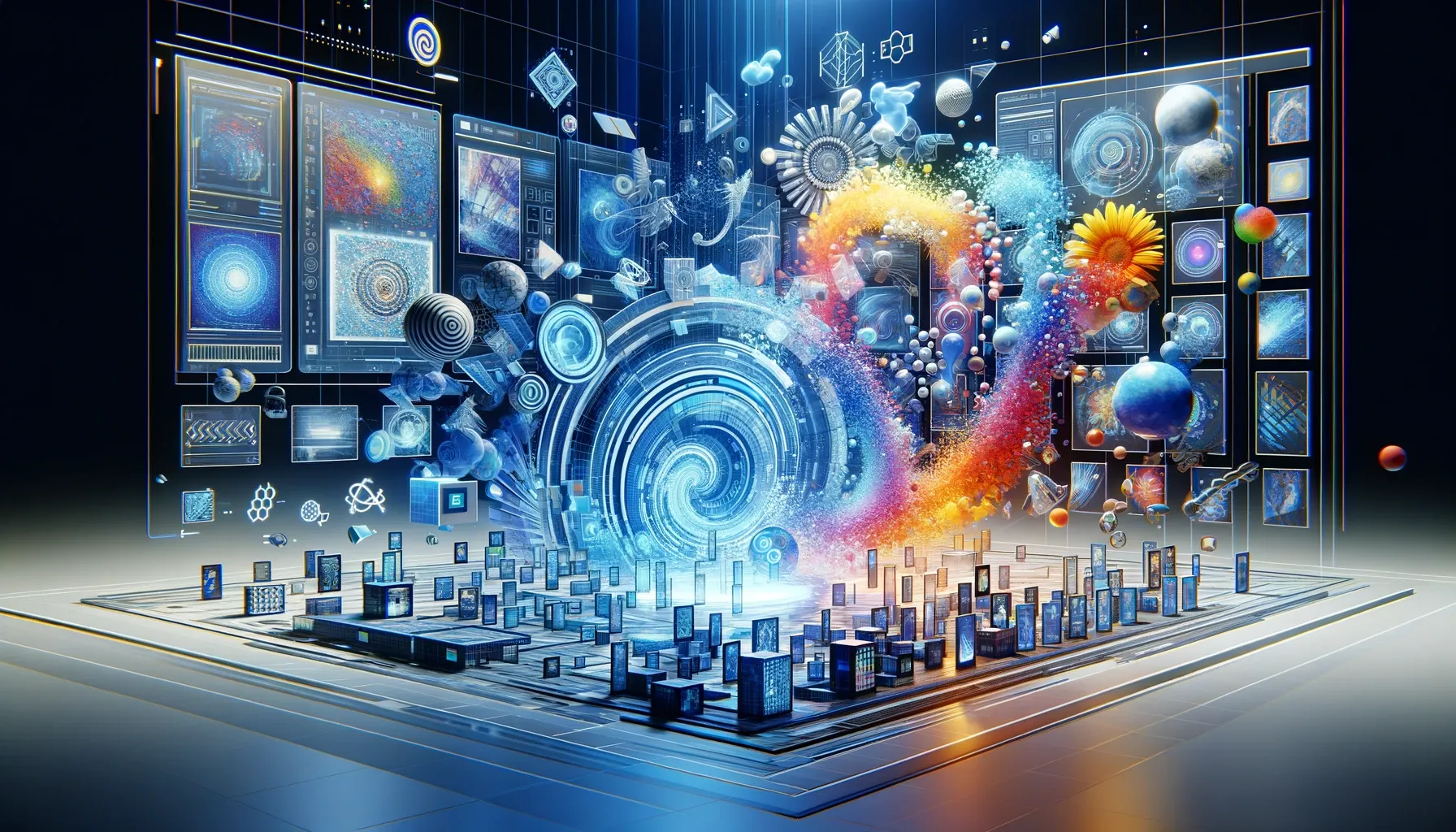Dear Bankless Nation,
The NFT space is evolving, and so too are the ways that we approach building, and interacting with, NFTs.
Toward that end, a rising trend lately is the creation of dynamic NFTs, i.e. non-fungible tokens whose metadata and visuals can evolve under certain circumstances.
To be sure, dynamic NFTs have been around for a while now, but as more projects have started to experiment with them, more people have started paying attention to the interesting possibilities at hand.
For today’s post, then, let’s dive into the basics of dynamic NFTs and explore how a handful of projects approach dynamism in different ways!
-WMP
An Intro to Dynamic NFTs
There are “static” and “dynamic” NFTs.
Think of a static NFT like a digital painting, e.g. a cryptoart 1/1 piece, or a digital collectible, e.g. a Bored Ape PFP. When you own it, it’s the same as when you got it and it won’t ever change. If you sell it later, the next person will receive the NFT with the same exact visuals and metadata, and so on.
In contrast, a dynamic NFT can change and evolve over time. They interact with data, events, or other NFTs to become something new or different. For example, in the context of web3 gaming, you can have non-fungible character assets that level up and get stronger or learn new abilities.
That said, though, we’ve already seen dynamic NFTs employed across a range of categories, from artworks to utility assets like PartyBid Party Cards.
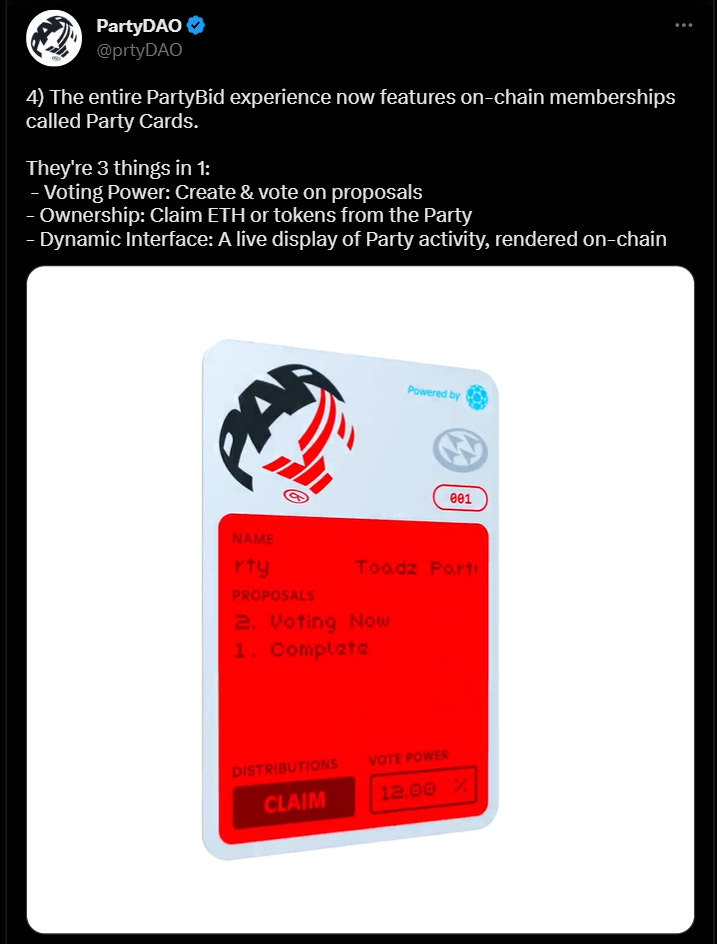
Yuga Labs, the juggernaut NFT studio behind the BAYC ecosystem, is also leaning increasingly into dynamism. Otherdeeds plots have dynamic traits, and Yuga’s latest HV-MTL collection release consists of “Evo 1 Mechs” that can play in future games to unlock new mech evolution stages. These high-profile embraces will have many other projects taking a closer look at dynamic NFTs in the months ahead.
How dynamic NFTs work
At the core of every dynamic NFT is its smart contract, which can be programmed to facilitate dynamism in different ways. The two primary ways are external data sources and user interaction.
With regard to external data, thanks to oracle networks like Chainlink, NFTs can change based on real-world events or other contextual information. For example, a dynamic NFT could change its appearance based on the weather, the performance of a sports team, or the price of a cryptocurrency as we’ve seen in the case of finiliar.
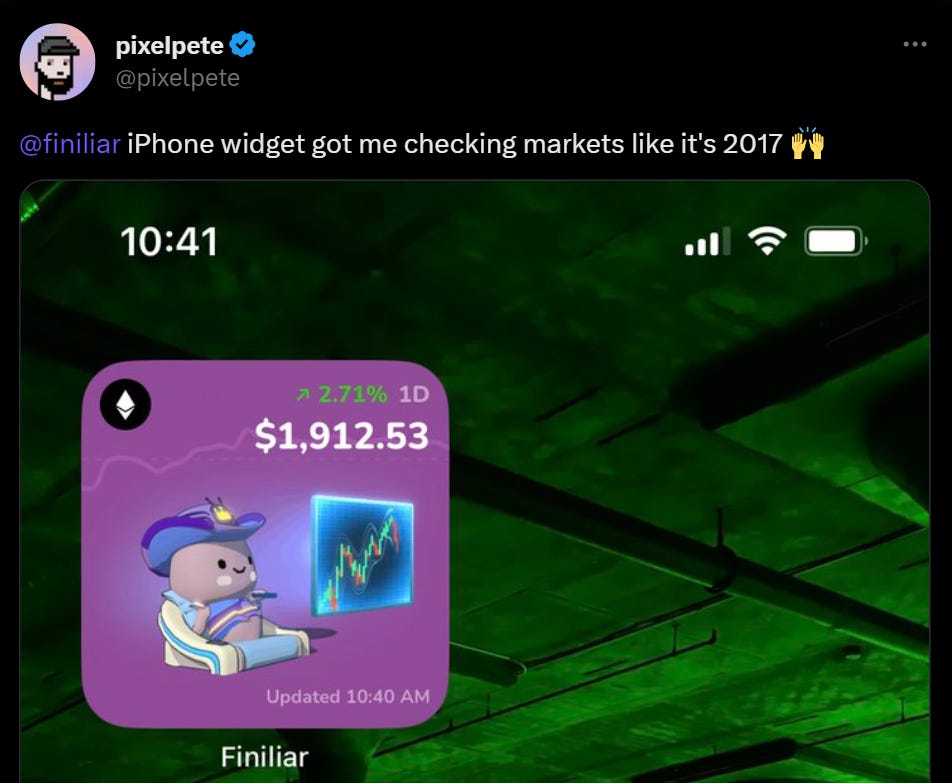
On the other hand, some dynamic NFTs are coded to evolve based upon user interactions. On example that comes to mind is Corruption(s*) by Dom Hoffman, the NFTs of which gain “Insight” XP and evolve accordingly over time, though the speed of this leveling up is reset every time one of these NFTs are transferred to a new address.
Dynamic projects to consider
Like I said before, dynamic NFTs aren’t new, but they have been rising in popularity more than ever lately as awareness around them has been growing. To give you a better sense of the kinds of dynamism we’ll likely be seeing more of in the NFT ecosystem going forward, let’s go over some of the projects that have been trailblazers here to date.
Async Art
Async Art is a platform that allows creators to build, buy, and sell dynamic digital art. Using Async’s template system, artists can readily release pieces that transform via collector interactions or along a preset schedule, e.g. once per each hour of the day.
ChainFaces Arena
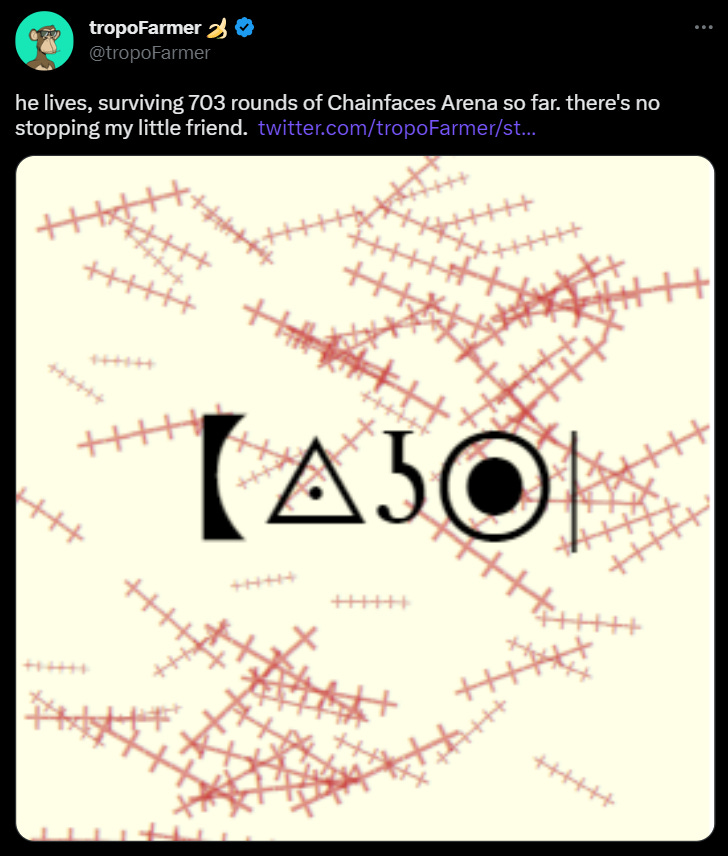
Created by Nate Alex, ChainFaces Arena is the follow-up to the original onchain generative ASCII ChainFaces collection. At the heart of the project was a battle arena, which ran throughout January 2022. NFTs that “fell” in the arena were lost forever, while ChainFaces that managed to survive had real-time updates to their battle scores and earned visual generative scars for every 10 rounds they endured.
Moonbirds
In Dec. 2022 and on the heels of going in-chain, the Moonbirds collection introduced dynamism by letting collectors opt-in to activating new backgrounds, starting with the “Max Pain” and “Starlight” backgrounds. These aesthetics are stored in the Moonbirds smart contract, so any updates or additions occur directly on the blockchain.
Pepethereum
Pepethereum presents dynamic onchain Pepes that interact with the Ethereum network. Specifically, these NFTs automatically adjust Pepe's smile based on the ETH price by tracking Uniswap pools data directly from the blockchain. With no reliance on external sources like IPFS or Arweave, Pepethereum ensures that all interactions occur solely on Ethereum.
Polymorphs
Polymorphs is a dynamic NFT project that stands out due to its unique trait scrambling system. This collection of ever-changing NFTs features 11 base skins and over 200 traits, allowing for a wide range of customization options. Owners can scramble their Polymorph's DNA to alter its appearance, including its outfit and wearable items.
Terraforms
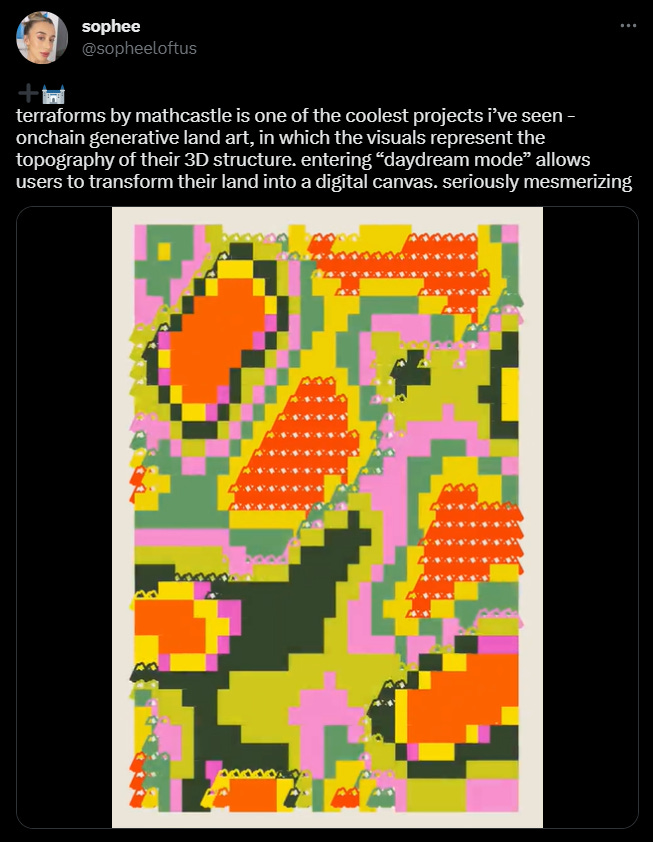
Terraforms are dynamic NFTs that provide a multifaceted experience as both 2D and 3D art pieces, as well as a creative software tool for designing unique artworks. These NFTs feature three distinct modes: Terrain, displaying land art animations; Daydream, enabling users to draw directly on the NFT; and Terraform mode, which records the drawings on the blockchain for public viewing. Transitioning a Terraform from Terrain to Daydream mode is irreversible, but users can effortlessly switch between Daydream and Terraform mode to create new artworks, overwriting previous drawings on the blockchain.
Wiiides
A conceptual art project by Sterling Crispin, Wiiides are dynamic NFTs that visually widen every time they are transferred on Ethereum. In this way, it’s possible for these NFTs to stretch and distort until they become just a few horizontal lines of color. This transformation challenges the notion of immutability in NFTs by leveraging the medium of economic transactions to alter their appearance. The Wiiides project is a parody of web3, poking fun at the market and development ecosystem while embracing its language. The end result resembles abstract paintings, like Mark Rothko's works, and showcases how references layered upon references can create something beyond parody!
Zerion DNA
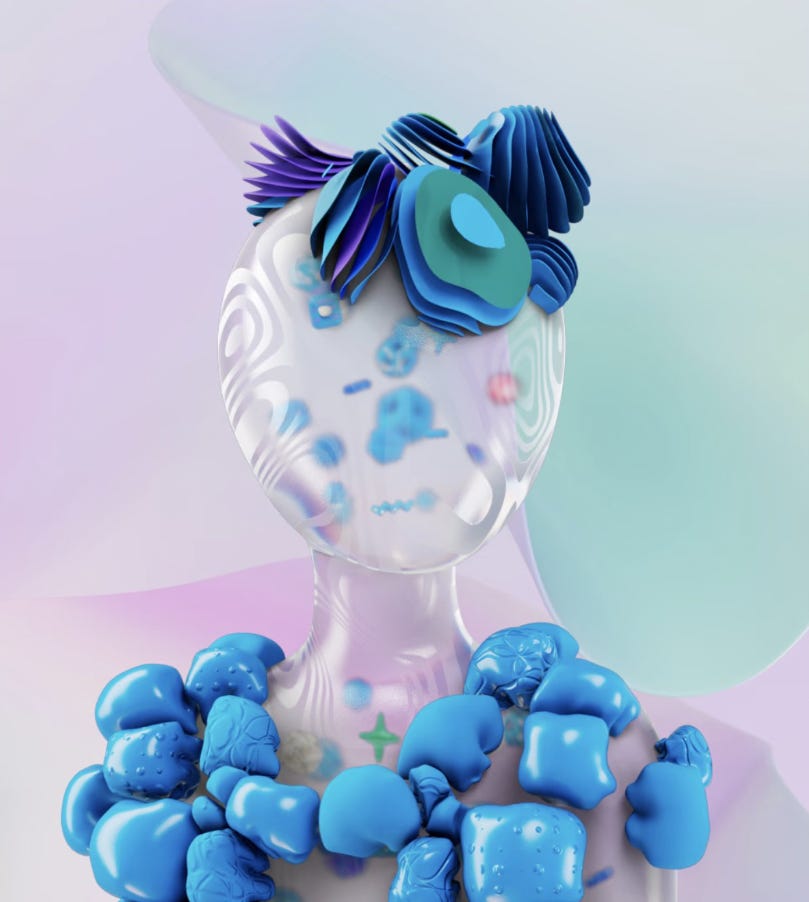
Zerion DNA is an innovative “living NFT” that evolves as you interact with web3. As you perform wallet actions, your DNA changes, allowing you to showcase your onchain identity per changes across six attributes—background, filling, body, clothing, head, and color. The color attribute even changes to reflect the network with the highest balance in your Zerion Wallet.
The big picture
The NFT space is constantly evolving, and more NFTs are now too thanks to dynamic NFTs having emerged as an exciting new segment in the ecosystem.
For some NFTs, like 1/1 cryptoart, how they don’t change at all is one of their greatest strengths. Yet for a growing range of projects, ranging from art to utility use cases, NFTs that can grow and adapt over time increasingly make a lot of sense.
We’re not there yet, but there may come a day when huge swathes of NFTs are dynamic. If that day ever comes to fruition, the projects building with dynamic NFTs now will be forerunners that paved the way, so study these pioneers if you want to understand how NFTs can and will embrace dynamic elements going forward.
